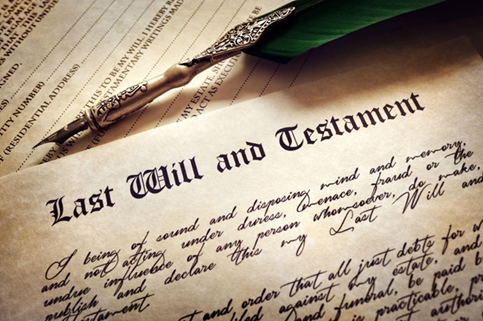There is a common misconception that estate planning is only necessary for people who are married or have children. However, if you have any assets and pass away without a Last Will and Testament or a trust, your possessions, including your hard-earned savings, will be distributed according to the State of Arizona’s intestacy laws. That is why, even if you are single without any children, you may want to consider discussing your situation with an experienced estate planning lawyer at Harrison Law, PLLC, by calling (480) 320-2310. Our knowledgeable legal professionals can provide guidance on the basics of estate planning for a single person and what estate planning tools you should consider pursuing.
At What Age Do Most People Do Estate Planning?
While many people tend to believe they should wait until they have a significant amount of money, or until they have entered retirement age, to consider any estate planning, in truth, it is always a good time to start estate planning. This means that no matter if you are single, a college graduate, or the breadwinner in a family with children or grandchildren, it is important to think about what will happen to your assets when you are gone.
Why Estate Planning Is Always a Good Idea
Even individuals with limited financial resources should consider making an estate plan, as these plans can help loved ones pay for funeral and burial costs while also making sure they have access to certain critical assets, including a person’s:
- Home, condo, or apartment
- Bank accounts
- Personal belongings
- Financial accounts
- Life insurance policies
When individuals neglect to create these estate plans, they leave their families having to endure lengthy court battles to gain access to essential assets and personal property. These frustrating inconveniences are often preventable with a carefully crafted estate plan.
What Is the Ideal Trust for a Single Person?
According to the Internal Revenue Service (IRS), a trust is a legal document that can ensure that a person’s assets pass to designated beneficiaries without subjecting those same beneficiaries to the delay and expense of the probate process. In establishing a trust, a person will need to decide how they want assets to be distributed after their death and who will be in charge of ensuring that those assets are transferred to the appropriate people.
For a single person, a living trust is one of the better trusts available. This estate planning tool lets a person transfer the ownership of their assets to a trust while still being able to control these assets and have access to them during their life. After the individual who created the trust passes away, the assets in the trust will be transferred to the proper beneficiaries. This type of trust not only helps avoid lengthy probate court proceedings, but it still allows the person to use their belongings and other assets.
Should Single People Have a Will?
When people die without a will, the court will need to appoint someone to administer their estate and distribute their assets according to the state’s intestate succession laws, which in the State of Arizona tend to be based on Arizona’s guidelines for next-of-kin hierarchy. If someone dies intestate with no heirs, their assets and other belongings will become the property of the state. Rather than risk this outcome, single people should consider making a will.
The Function of a Last Will and Testament
A will, formally known as a Last Will and Testament, can be used to give away any assets the person owns, including specific financial assets. However, wills are also beneficial for single people when they:
- Want to give their money and assets away to the right individuals
- Want to stop the state from claiming assets when they have no heirs
- When they want to ensure the right executor is appointed to settle the estate
If you are considering creating a will but need further help with the process or want additional information regarding these documents, reach out to Harrison Law, PLLC, today to review estate planning for a single person.
What Is the 5×5 Rule in Estate Planning?
The “5 and 5 Power” rule is sometimes used in a trust to let individuals who own a trust withdraw a certain amount of value from it every year before it is scheduled to be distributed. This rule exists to either ensure that capital gains taxes are minimized on the contents of the trust or distribute a large money sum piece-by-piece over several years. Basically, it is defined by the annual distribution of the greater of:
- Five percent of the trust’s total fair market value or
- $5,000
For single people, a 5 by 5 Power allows them to have more flexibility when leaving large sums of money, and they can set parameters when it comes to beneficiaries having access to their funds.
Update the Estate Plan as Needed
Individuals who have reservations about estate planning should know that in most cases they can update these critical documents as needed. If life circumstances change, which may include things such as marriage, children, or becoming involved in important charities, individuals can update their estate plans to help make sure that everything they have spent their lives working for is distributed to the organizations, charities, and loved ones that mean the most.
Although estate planning can sometimes be more complex for single individuals than for married couples, since these individuals are placing their assets into someone else’s hands and trusting they will follow their directions, it is better than the alternative. When people do not create a plan, they let the state decide what to do with their most cherished objects, and in most cases, the court’s hands will be tied by intestacy laws.
Contact Harrison Law, PLLC, Today To Develop Your Estate Plan
If you are looking for an experienced Arizona estate planning attorney to help create an estate plan or go over any questions regarding the process, consider discussing your concerns with an estate planning lawyer from Harrison Law, PLLC. We can review with you common concerns related to estate planning for a single person and help you determine the best estate planning tools to fit your needs. Schedule your individual appointment today by calling us at (480) 320-2310.
© 2023 Matthew W. Harrison and Harrison Law, PLLC All Rights Reserved
This website and article have been prepared by Harrison Law, PLLC for informational purposes only and does not, and is not intended to, constitute legal or financial advice. The information is not provided in the course of an attorney-client relationship and is not intended to substitute for legal advice from an attorney licensed in your jurisdiction.






